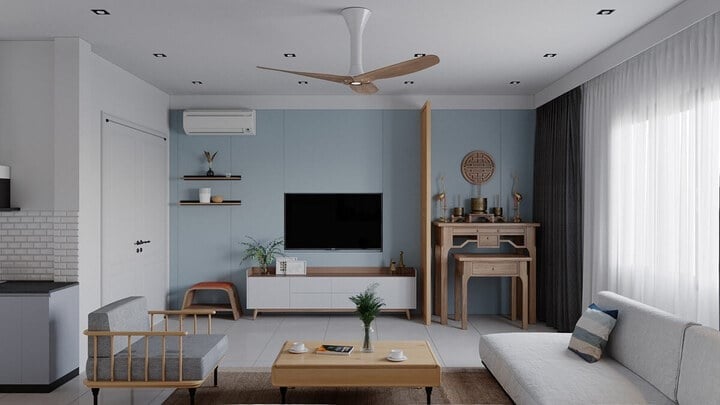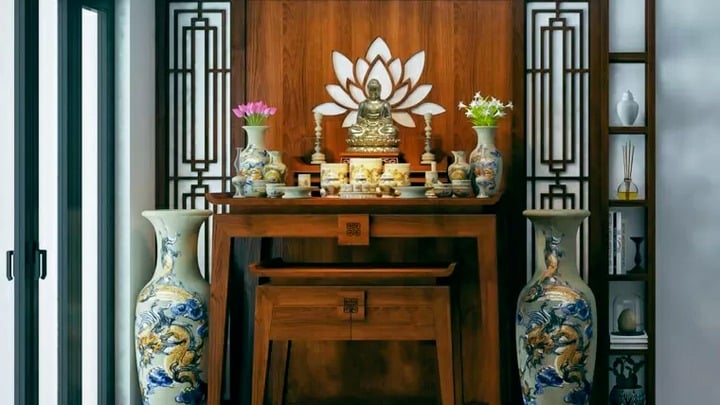Light is an essential element in designing and decorating living spaces. It not only affects daily activities but also has a direct impact on our body’s circadian rhythm, regulating our sleep-wake cycles, moods, motivation, and productivity, either positively or negatively.
Why do they say, “A bright living room brings prosperity, while a brightly lit altar room brings decline”?
In Feng Shui, light is considered a symbol of Yang energy, bringing robust energy to the living space. A house filled with natural light and a good breeze will make the occupants feel happy, comfortable, and positive, leading to better health and attracting good fortune and prosperity.
However, this doesn’t mean that all areas of the house should be brightly lit at all times. The saying, “A bright living room brings prosperity, while a brightly lit altar room brings decline,” emphasizes the importance of allocating the right amount of light in different areas of the home.

In Feng Shui, light is considered a symbol of Yang energy, bringing a robust energy to the living space.
Each space requires a specific amount of light and doesn’t always need uniform brightness. The living room, being the communal area for entertainment and receiving guests, is considered the ‘wealth position’ in Feng Shui, where the God of Wealth is invited in, and thus, abundant light is needed to attract this Yang energy. Sufficient lighting in the living room creates a fresh, cheerful, and prosperous atmosphere, leaving a positive impression on guests and attracting wealth.
On the contrary, a dimly lit living room creates a gloomy and lifeless space, lacking vitality, and can negatively impact guests’ first impressions. A lack of light can also cause a sense of stuffiness and gloom, fostering bacteria and mold growth. Therefore, ensure that your living room receives ample natural light when designing your home.
The altar room, being a sacred space for worshiping ancestors and deities, requires privacy, tranquility, and discretion to show respect. According to Feng Shui, the altar room carries a strong Yin energy due to the presence of ancestral spirits, and thus, bright lighting is not necessary. Strong light shining on the altar may create disharmony with the area’s Yin nature and be seen as disrespectful.

The altar room is a sacred space for worship and should be kept private, quiet, and discreet to show respect.
In folk belief, disrespecting ancestors and deities may bring misfortune, affecting one’s health, work, and finances. Hence, the saying, “A bright living room brings prosperity, while a brightly lit altar room brings decline,” came to be.
For the altar room, soft and gentle lighting is usually chosen to create a solemn and peaceful atmosphere. In smaller homes or apartments where the altar room is combined with the living room, ensure a clear distinction between the two areas. Avoid placing the altar near strong light sources like chandeliers or windows with direct sunlight. Additionally, do not place the altar next to the TV, fish tank, or entertainment area to maintain the sanctity of the worship space.



































